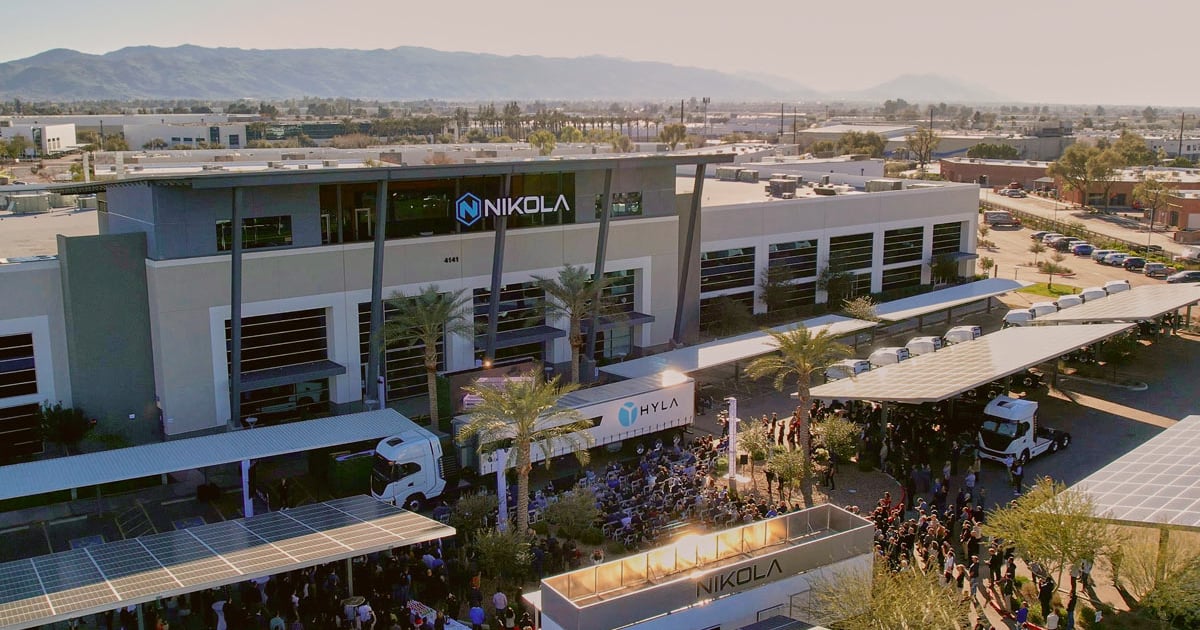
Nikola Corp. shareholders are voting in favor to approve a proposal critical to the hydrogen fuel cell truck developer’s survival, but the company still needs more votes to put its plan into action.
Although 77 percent of those shareholders voting agreed to double Nikola’s outstanding shares to 1.6 billion from 800 million, the company has not obtained the required majority of all common stock holders to approve the measure.
It adjourned Wednesday’s annual shareholders meeting until July 6 to solicit more votes. Nikola declined to say what percentage of all shareholders have voted to approve the proposal.
The plan provides a way for the cash-strapped startup to raise new capital to build hydrogen-powered Class 8 trucks and a national fueling network.
Additionally, the Phoenix company may still have to execute a reverse stock split to remain in compliance with Nasdaq’s listing requirements.
If the share authorization measure stalls or fails, the company could try again.
Pending changes to the Delaware General Corporation Law would reduce the threshold for approval to a majority of the shares voting. That is expected to be effective Aug. 1. If in effect today, Nikola would have had enough votes for the proposal.
The share authorization comes as the company once dubbed the “Tesla of trucking” faces challenges to its survival, including the potential Nasdaq delisting and continued investor pressure to curb its $150 million quarterly cash burn.
The vote is “a must-win for the team at Nikola, to put it bluntly,” Jeff Osborne, a senior analyst, at TD Cowen, the American investment arm of Canada’s Toronto-Dominion Bank, told Automotive News.
Ahead of Wednesday’s vote, Nikola CEO Michael Lohscheller hosted an online fireside chat with company stockholders last week to answer questions about the company’s plans for profitability and to convince them to vote for the share authorization proposal.
Nikola plans to focus its operations in North America with an emphasis on fuel cell trucks and its nascent hydrogen refueling business, HYLA, Lohscheller said.
Previously, Nikola had partnered with Italian commercial vehicle maker Iveco Group to market battery-electric trucks in the U.S. and Europe while it developed its fuel cell truck. The company ended a joint venture with Iveco to build battery-electric trucks in Europe in May. To raise cash, Nikola sold its stake in Iveco back to the company for $35 million. Iveco also purchased 20 million shares of Nikola.
Nikola is relying on California and federal environmental and vehicle incentives to sell its trucks and build a green hydrogen fueling network, Osborne said.
“The company needs the capital to move forward with the fuel cell variants of the Nikola Tre, which holds a great deal of promise,” Osborne said.
The extra shares would give Nikola the ability to raise capital to survive until 2024 and 2025 when it expects demands for its trucks to ramp up, Osborne said.
“The proverbial ‘hockey stick’ of potential demand is not until the back half of 2024 and into 2025, thus the need for capital to bridge that gap,” Osborne said.